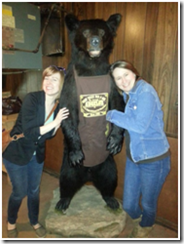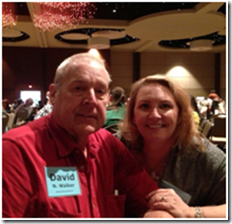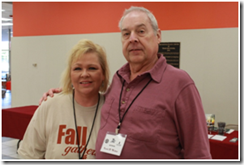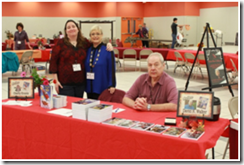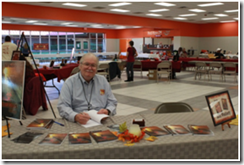David N. Walker's Blog, page 23
January 21, 2014
Tithing
One subject that seems to present a stumbling block to Christians is tithing. Why should I tithe? What if I’m already having trouble paying my bills?
If you have not read the earlier posts in this series, find the “Categories” list in the right-hand column of this page and click on “Christianity 101.” This will pull up all the previous posts so you can read through them in order.
The idea of tithing has been around for millennia. The first reference arose in the book of Genesis when Moses said that Abraham paid tithes to the priest Melchizedeck. In Old Testament days the tithe was generally paid in animals, crops or other goods, but in modern times, since we receive our pay in the form of cash or bank deposits, we pay our tithes in the same form.
But why do we tithe? The answer to that depends upon whom we ask.
If we ask a fundamentalist, we will probably be told, “Because God said to,” or “Because we’re supposed to,” or simply, “It’s our obligation.”
Well, all of those statements are true. God did say so, and we are supposed to, and it is our obligation. But do oughts and obligations motivate us? Not really all that effectively. Human nature is that we fulfill obligations when anyone is watching, but we look for the chance to ignore them when we’re sure no one can see us. Sound familiar?
When I was a child, I was expected to tithe on my allowance. When the offering plate came around, I would thump the bottom of it to make it sound like I’d dropped a coin or two into it. As I got older and sat with friends instead of my family—usually far enough away my dad couldn’t see me—I just ignored the offering plate.
Duties, onuses, obligations are not the most effective way to motivate human behavior.
About 30 years ago, still basically a non-tither, I found a better reason. A cousin got me started listening to a television preacher who preached the gospel of prosperity. This man taught an idea that was brand new to me—that I could tithe my way to wealth.
Many charismatics I know sincerely believe this. One reference they will cite is Luke 8:8, which says, “But others fell on good ground, sprang up, and yielded a crop a hundredfold. . . .”
This is a direct quote from Jesus, but it needs to be put into context. He was delivering the parable of the seeds, and He was talking about how a seed brings forth a plant many times its own size.
The other primary reference they use for this either Matt 19:28-29 or Mark 10:29-30. Both of these passages quote the same words from Jesus—that everyone who has left houses or brothers or sisters or father or mother or wife or children or lands for His name’s sake would receive a hundredfold and inherit eternal life.
This motivated me for awhile, but as I became a little more mature in the word, I realized that God was not talking about money here. I thought there must be a better reason to tithe than trying to use God as a sugar-daddy.
Yeah, but David, I like this hundredfold idea. Are you sure? If examining the word itself is not convincing enough, let’s apply a little common sense. Do we really believe we can tithe one dollar and God will give us back $100? If so, let’s tithe that $100 and wait for Him to give us back $10,000. Then it would be $1 million, then $100 million, then $10 billion. Next would be $1trillion. Does this begin to expose a logical fallacy? Every dollar on the planet would soon end up in our pockets. I don’t think so.
The prosperity people do quote one passage which I think is very pertinent. Malachi 3:10 says, “‘Bring all the tithes into the storehouse, that there may be food in My house, and try Me now in this,’ Says the Lord of hosts, “‘If I will not open for you the windows of heaven and pour out for you such blessing that there will not be room enough to receive it.’”
Unlike the other passages the prosperity people love to quote, this passage does not promise a specific return. It doesn’t say every time you tithe a dollar God will give you $100. In fact, it doesn’t even necessarily promise a financial reward at all. The blessing could be good health, or a lasting marriage, or children leading joy-filled lives. We all take many, many blessings for granted which may be direct results of this promise.
But in my opinion, Jesus gave us an even better reason to tithe in the 6th chapter of Matthew. In verses 19-21, He said:
Do not lay up for yourselves treasures on earth, where moth and rust destroy and where thieves break in and steal;
But lay up for yourselves treasures in heaven, where neither moth or rust destroys and where thieves do not break in and steal.
For where your treasure is, there your heart will be also.
The bold and underlining is mine, of course. To me, this is one of the most key verses in the entire Bible. Verses 19 and 20, even though they came from Jesus, still appeal to our soulish nature. We don’t want our money destroyed or stolen, and here’s a way to keep that from happening.
Verse 21, however, appeals solely to our spirit-man. It gives us a way to allow our money to lead our hearts in the right direction.
Think about it for a moment. Think of a farmer with a crop in the field. His every waking hour is filled with concern about the weather, commodity prices, pests—things that can affect that crop.
Or the man with a multi-million dollar stock portfolio. He has a constant eye on the Dow, the S&P 500, all the news that can affect the ups and downs of the market.
“Where your treasure is, there your heart will be also.”
My tithe gives me an investment in God’s kingdom. It draws my heart inexorably toward God’s kingdom. This is my motivation for tithing. It doesn’t depend on who’s watching or making me feel guilty if I don’t do something. It gives me a positive reason, an internal motivation for tithing. That’s a lot more powerful than telling me I ought to.
How do you feel when a preacher or teacher or some other person tells you you “ought” to tithe? That it’s your duty? That your money is needed for this program or that?
~~~~~~~~~~~~~~~~~~~~~
If you abide in Me and My word abides in you, then you shall know the truth, and the truth shall set you free.
~~~~~~~~~~~~~~~~~~~~~
For more information about David N. Walker, click the “About” tab above.
For more information about his books, click on “Books” above.
Contact him at dnwalkertx (at) gmail (dot) com or tweet him at @davidnwalkertx.
Filed under: Christianity 101 Tagged: Christian, Christian Fellowship, Christianity, David N. Walker Christian Author, David N. Walker Historical Fiction Author, Faith, Fancy Series, God is in control, Godly Wisdom, Grace, Heaven Sent, inspiration, Jesus, tithing, Works 

January 17, 2014
Great IMAX Movie
Do you live near an IMAX theater? Have you viewed a movie there? If you haven’t, you’re denying yourself a real treat.
My wife and I have seen movies in IMAX theaters in San Antonio and Spokane, WA. Here in Fort Worth, we have an upgraded version of IMAX called OMNI. The screen wraps up across the ceiling and behind you to the back wall.
In our OMNI theater, they always start off with a helicopter ride around the city before the movie starts. I’ve never figured out how they do it, but YOU’RE IN THE HELICOPTER!
As the helicopter moves through the air, the whole seating area of the theater tilts forward. The front row of the theater moves almost directly under you. No matter how many times I view this—and I’m sure I’ve been there well over a dozen times—I still grab the armrests to keep from falling out of my seat. It’s that real.
Earlier this week, my wife and her sister and I went to see “Rocky Mountain Express.” It’s about the building of the Canadian Pacific RR from Vancouver to Calgary.
The engine featured in the movie
The movie takes the viewer on a trip following a train pulled by a steam engine and showing the various problems encountered by the builders in dealing with both the terrain and the weather. In the process, it shows some of the most beautiful scenery on the continent.
Stony Creek Bridge in Rogers Pass
In addition to the problems of bridging deep gorges and climbing and descending steep grades, they had to deal with landslides and avalanches. At one point, a landslide obliterated most of a town, and the bodies of the people are still buried underneath.
If you have access to an IMAX theater, keep your eyes open for this wonderful movie. You’ll be glad you did.
Have you ever watched an IMAX movie? What did you think of the experience.
——————————————
WANA: We may not have it all together, but together we have it all.
——————————————
For more information about David N. Walker, click the “About” tab above.
For more information about his books, click on “Books” above.
Contact him at dnwalkertx (at) gmail (dot) com or tweet him at @davidnwalkertx.
Filed under: Uncategorized Tagged: Advice, Authorship, Canadian Pacific RR, Caring, David N. Walker Christian Author, David N. Walker Historical Fiction Author, Fancy Series, friends, Heaven Sent, IMAX, Life, Life experience, Life lessons, Life truths, Life values, People, Personal development, Rocky Mountain Express, Self-help 

January 14, 2014
Three Ways of Gaining Knowledge
Most Christians either desire—or at least delude themselves into thinking they desire—to pursue an ever-growing knowledge and understanding of spiritual things in general and God’s word in particular. In order to do that, however, we need to understand how spiritual truth is perceived and learned and how this process differs from perceiving and learning earthly realities.
This subject is so critically important to Christians that I’m remiss in not mentioned it earlier in the series. It’s fundamental to all Christian learning.
If you have not read the earlier posts on this subject, find the “Categories” list in the right-hand column of this page and click on “Christianity 101.” This will pull up all the previous posts so you can read through them in order. I’d suggest digesting today’s post before reading the others.
There are three basic ways of learning: empirical, rational and spiritual. The first two relate primarily to gaining knowledge and understanding of things related to life here on planet earth; however, they are employed also as a part of the third.
Let’s define and examine empirical learning. It is the gaining of knowledge through the use of our five senses. Empirical learning is a very real and legitimate way of acquiring knowledge, but it is also very limited.
The classic example of empirical learning is the child who touches the hot stove. He immediately learns the stove is hot and that touching it hurts, but that is all he learns. He still doesn’t know much about stoves. He doesn’t know that there are times when it’s hot and times when it’s not, nor does he understand how to turn it on and off, much less how to build one. The knowledge gained is real and important, but it’s very incomplete.
The empirical means of learning is a valid avenue to an area of truth, but in order to make that truth cogent, we must employ another method.
Rational learning is coming to knowledge of truth by employing the analytical and reasoning processes of the mind. This brings us into deeper and more useful understanding than does empirical learning.
Continuing with our example of the stove, as the child grows older, he can apply his mental processes to learn more about it. He learns that it’s only hot when someone has turned it on. He also learns to turn the dials or press the buttons to turn it on, to raise or lower the level of the heat and maybe how to cook on it.
Starting off with the empirical knowledge he gained from touching the stove when it was hot, this child has now, by adding analysis and reasoning, come to a pretty good understanding of what the stove is for and how to use it without hurting himself. It is by application of this rational learning that men and women have emerged from the cave and come to live twenty-first century lives—driving cars, building computers, using cell phones and iPads and all the other things we take for granted in today’s world.
The third way of learning involves moral and spiritual values and a person’s relationship with God. We can use the first two in the growth of our spiritual knowledge, but they are not in themselves enough.
Most Christians can think back to some specific experience or chain of experiences (empirical learning) which brought us to the foot of the throne ready to accept Jesus as our Savior. Those experiences were a very real and important part of the process of beginning to develop our spiritual lives, but they will not lead us to grow much in our relationships with God.
We use our rational processes to read the Bible and listen to teaching and preaching as part of the process of expanding and deepening our spiritual knowledge. We relate to other Christians and share our testimony and/or understanding of truth with them. All of these things help in our spiritual growth, but they are not enough.
We’ve all had the experience of talking to a fellow Christian when we came to realize that he or she was only interested in supporting his or her own preconceived beliefs, rather than honestly searching for new truth. In fact, I’d dare say most of us have been that person at one time or another. When we do that, we cannot grow in spiritual understanding, because our own narrow mind cuts off any new truth that may try to seep in.
The spiritual method of learning demands a willingness to be transformed by the truths learned. I must be willing to give up my beliefs and my understanding when necessary, in order for God to be able to show me new and deeper meaning. And as I progress in my spiritual life, this willingness becomes a soul-deep desire to be changed. Allowing myself to be changed by God’s revelation of true meaning must become so important to me that proving the rightness of my own positions becomes of no value to me at all.
The salvation experience itself shows the absolute necessity of giving up what we think is of most importance and allowing God to impose His values and His truth. When we were lost we could read the Bible ten hours a day. We could attend church every time the doors open. We could have our bodies immersed in water every week. But we’d still be lost.
It was only when we came to the end of ourselves and submitted ourselves to Jesus that we were saved. If we must give up our own value system, our own beliefs, our reliance upon ourselves in order to be saved, how can we not be willing to give up our need to be right all the time in order for God to lead us in spiritual growth?
Ø Have you had the experience of trying to talk to someone only to realize that person was just waiting for the chance to state or defend his beliefs? Do you think he learned anything from you?
Ø When you listen to a sermon or a Sunday School lesson or other Bible teaching, do you honestly and humbly submit yourself to God and ask Him to wipe away any preconceived notions that may keep you from learning?
~~~~~~~~~~~~~~~~~~~~~
If you abide in Me and My word abides in you, then you shall know the truth, and the truth shall set you free.
~~~~~~~~~~~~~~~~~~~~~
For more information about David N. Walker, click the “About” tab above.
For more information about his books, click on “Books” above.
Contact him at dnwalkertx (at) gmail (dot) com or tweet him at @davidnwalkertx.
Filed under: Christianity 101 Tagged: Christian, Christian Fellowship, Christianity, David N. Walker Christian Author, David N. Walker Historical Fiction Author, Faith, Fancy Series, Gaining Knowledge, God is in control, Godly Wisdom, Grace, Heaven Sent, inspiration, Jesus, Learning, Works 

January 10, 2014
A Personal Triumph
I’ve done so much whining about my shoulder surgery lately, I thought I’d get a little more upbeat and report some good news for a change. That’s more fun anyway.
While I was dating Sharon, and during the first few years of our marriage, I managed to gain forty pounds. Actually, it wasn’t much of a struggle. I can gain weight with surprising ease.
Through the years, I’ve tried various schemes to get it back off, but none seemed to work successfully. The best one was Protein Power—similar to the Adkins Diet. I can trade sweets for a nice steak anytime. Unfortunately, I didn’t lose much weight with it.
At times, I’d lose ten pounds for awhile. Then I’d put it back on. The famous yoyo diet. Grrr.
Along the way, this added weight contributed to my developing high blood pressure, diabetes, and a couple of bouts with atrial fibrillation. I’m very fortunate that medications keep these conditions under stable control, but I might not have them at all if I hadn’t gained all that weight.
A couple of years ago, I decided to get serious about my weight. I’ve never been able to get anywhere with specialty diets or counting calories, so I didn’t even try. What I decided to try was eating big breakfasts and medium-sized lunches and as little as I could manage for supper—along with no extra snacks.
Several days a week, I eat breakfast out, and I don’t try to deny myself when I do. On those days, I usually manage to put lunch off until somewhere between 2 and 3 p.m. That allows me to put off supper until maybe 7 p.m. and eat something like a handful of peanuts and a apple or banana for supper. For dessert after lunch and supper, I allow myself a 40-calorie No-Sugar-Added Blue Bunny Fudge bar.
The weight has gradually come off over this couple of years, and when I stepped on my scales this morning, I was within two pounds of the weight when I met Sharon. All this time, my goal has been to get to that weight, and it’s now within reach. It’s been a long, slow trip, but I can see the finish line ahead.
To those of you who have never had a weight problem, this may sound like no big deal, but those of you who have fought this battle will recognize the triumph. It really is a big deal.
Although I’m happy with this weight loss, as I’ve approached this weight, I’ve noticed in the bathroom mirror that my body doesn’t even resemble that of 23 years ago. Funny how various muscles relax with age. I decided I’m going to try to lose at least another 20 pounds. Don’t know if I’ll ever get there or not, but I’ve decided not to stop at my original goal. I’m going to keep plugging.
If I manage to lose that extra 20, I still probably won’t have the physique I had 23 years ago, but maybe I’ll be closer. There’s a lesson in this for some of you guys. If you need to lose some weight, do it while you’re in your thirties or forties and still have some shape to your body. Don’t wait until your sixties and seventies when the shape is almost impossible to retrieve.
Now, if I could just figure out what to do with this extra chin that loves to be featured whenever anyone takes a picture of me . . .
What are you doing or have you done about health or weight problems?
——————————————
WANA: We may not have it all together, but together we have it all.
——————————————
For more information about David N. Walker, click the “About” tab above.
For more information about his books, click on “Books” above.
Contact him at dnwalkertx (at) gmail (dot) com or tweet him at @davidnwalkertx.
Filed under: Uncategorized Tagged: Advice, Authorship, Caring, David N. Walker Christian Author, David N. Walker Historical Fiction Author, Fancy Series, friends, Heaven Sent, Life, Life experience, Life lessons, Life truths, Life values, People, Personal development, Self-help, Weight-loss


January 7, 2014
A Blanket Promise from God
This week we continue examining some of God’s promises to Christians. Last week, we looked at what I call an “if/then” promise. God promised that if we would do this, then He would do that. Today, we are going to examine a blanket promise—one in which God promises to do something without requiring anything of us.
If you have not read the earlier posts on this subject, find the “Categories” list in the right-hand column of this page and click on “Christianity 101.” This will pull up all the previous posts so you can read through them in order.
Our text for today is Romans 8:28 & 29, which read as follows in the New American Standard Bible:
And we know that God causes all things to work together for good to those who love God, to those who are called according to His purpose.
For those whom He foreknew, He also predestined to become conformed to the image of His Son, so that He would be the firstborn among many brethren;
This is one of those passages people love to misuse for their own purposes. How often have you heard someone say, “God causes all things to work together for good” without finishing the quote? The feel-good preachers would have us believe God is some kind of Santa Claus or sugar-daddy just handing out candy to us regardless of who we are or what we do.
It’s always dangerous to pick certain parts of a scripture to quote without considering its context. God is not speaking to all people here. He’s speaking to those who love God and are called according to His purpose. In other words, to Christians—or to those He, in His foreknowledge, knows will become Christians.
Say what? People who will become Christians?
Yes. That’s what verse 29 is saying. God foreknew before the foundation of the world who would and who would not accept His Son as Savior. He doesn’t spend His time and energy on those He knows will never accept Jesus. He concentrates His effort on those He knows will. He knows exactly what set of circumstances will cause each individual to come to Jesus, and He works in that person’s life to bring about that set of circumstances.
In my case, He knew He had to overcome an enormous pride and glibness to get my attention. Although He is not a fan of divorce and He doesn’t desire financial ruin for His people, He knew I had to suffer through both before I would surrender myself to the saving grace offered by Jesus. Some forty years ago, He allowed me to screw up badly enough in both my personal life and my finances to come to that point. Then He saved me.
He knew before I was born what it would take to get me to come to Jesus, and He worked to lead me into that set of circumstances. He brought me to salvation so He could begin the life-long process of conforming me to the image of His Son. By doing this for me and countless others throughout history, He made Jesus the first-born among many brethren.
But verse 28 doesn’t cease operating just because we accept Jesus. Our Salvation is the first step. It’s the door-opener that begins the process of perfecting us, conforming us to the image of His Son. Just as He causes all things to work together for good to get us saved, He also causes all things to work together for good to perfect us.
We will not attain that perfection in this life, but He is constantly at work leading us toward it. When things happen in our lives that seem to be bad, we need to remember that God is using those very things for our good. Joseph’s brothers intended ill to him when they sold him into slavery, but God took that and used it to bring about good for Jacob’s family and their descendants. He is still doing that today—in my life and that of every other person who either is or will become a Christian.
What things have happened to you that seemed bad at the time but which, in retrospect, you can see as good?
~~~~~~~~~~~~~~~~~~~~~
If you abide in Me and My word abides in you, then you shall know the truth, and the truth shall set you free.
~~~~~~~~~~~~~~~~~~~~~
For more information about David N. Walker, click the “About” tab above.
For more information about his books, click on “Books” above.
Contact him at dnwalkertx (at) gmail (dot) com or tweet him at @davidnwalkertx.
Filed under: Christianity 101 Tagged: Christian, Christian Fellowship, Christianity, David N. Walker Christian Author, David N. Walker Historical Fiction Author, Faith, Fancy Series, God is in control, Godly Wisdom, Grace, Heaven Sent, inspiration, Jesus, salvation, Works


January 3, 2014
A Year of Mixed Blessings
Was 2013 a good year or a bad year? How about a lot of both?
One fun part of last year was publishing my Fancy series. I’d published the first couple of novellas toward the end of 2012, but I finished the rest last year, putting volume 7 on the market late in the summer. The series hasn’t exactly been a bestseller, but at least I did get it written and out there.
As soon as I finished volume 7, I began writing volume one of the three novella series Ruth. Unfortunately, when I submitted it for editing, several things were pointed out to me that required a major rewrite, which, of course, slowed everything down.
A highlight of the year for me came last May, when I attended the DFW Conference. It was my second year to attend, and I got to renew friendships with Piper Bayard, Jenny Hansen, Donna Newton, Julie Glover, and Jess Witkins, along with local friends I don’t see often like Gloria Richard and Kristen Lamb and Ingrid Schaffenburg, and Nigel Blackwell, whom I do see frequently during the year. If I overlooked mentioning anyone, it’s because of an aging brain, not because you’re not important.
Along with renewing these friendships, I got to meet a couple of cyber friends for the first time. Rachel Funk Heller was with a group of my friends when I first got there, and she rode across town with me to barbecue restaurant Kristen wanted to introduce everyone to.
The next evening, I got to meet Tameri Etherton. We’d been corresponding about our desire to meet each other, and it was great to see her. And, folks, she’s as nutty in person as she is on social media. I loved it.
Donna Newton doesn’t speak the language very well since she’s from England, but she fit right in with cowgirls Ingrid Schaffenburg (l) and Julie Glover (r).
Jess Witkins (l) and Julie Glover found a new friend.
When you get Piper Bayard (l), Jenny Hansen (c) and Donna Newton (r) together, you never know what’s going to happen, but you can guess it’ll be something embarrassing.
Rachel Funk Heller (l), shown here with Ingrid Schaffenburg and Kristen Lamb (r), swam over from Hawaii to join us. You might as well come this year—you’re probably not as far away as she was.
Here’s Tameri, along with some old man posing as me.
In November, I attended “The Fall Gathering of Authors” in Texarkana. This is a quality event spearheaded by a tireless lady named Tammy Thompson with the dual purpose of giving some authors exposure and raising money for St. Jude’s Hospital in Memphis.
Here I am with Tammy Thompson, a gracious hostess if there ever was one. Below, Charity Kountz and I shared a table to sell our books, and Patty Wiseman came over from the next table to pose with us.
Rich Weatherly, below, told Charity and me about the event, and we were both glad he did.
There were downsides to the year also. Two of my favorite people had really rough times, Susie Lindau fighting breast cancer, and Renee Shuls-Jacobson, overcoming an addiction that crept up on her from a medication she took under a doctor’s prescription. Susie bounced back so well the year decided to give her some bad floods to deal with as well.
Fortunately, both of these dear ladies are overcomers. Susie is pretty well back to normal, and Renee is well on her way back—if you can call a writer normal. It was tough watching them go through all they had to deal with, but it’s great to see them back on track.
In family news, our daughter and son-in-law are both doing well. She received two promotions. Oldest grandson entered his senior year at Baylor. Middle grandson graduated from New Braunfels Christian Academy. Youngest grandson became quarterback on NBCA’s football team, but during the one game we got to see, he received a fairly serious shoulder injury. Son and daughter-in-law are both doing well. They are in New York City for Christmas and New Year’s.
In sad family news, Sharon’s older sister lost her husband to heart trouble during the summer. A little later, her younger sister lost her mother-in-law Along the way, a beloved cousin of Sharon’s passed also. Seems like we went from one funeral to another for awhile there.
My sister Barb had to have knee replacement surgery redone. In a year and a half, her knee had never recuperated, so she had a new surgery in December to remove the old replacement and put in a new one. I can’t even imagine the suffering she’s been through with that knee.
In December also, I had rotator cuff surgery on my left shoulder. It’s been a big deal to me, and it’s really slowed me down, but it pales in comparison to what Susie and Renee and Barb had to deal with.
How was your year? Good, bad or both?
——————————————
WANA: We may not have it all together, but together we have it all.
——————————————
For more information about David N. Walker, click the “About” tab above.
For more information about his books, click on “Books” above.
Contact him at dnwalkertx (at) gmail (dot) com or tweet him at @davidnwalkertx.
Filed under: Uncategorized Tagged: Advice, Authorship, Caring, David N. Walker Christian Author, David N. Walker Historical Fiction Author, Fancy Series, friends, Heaven Sent, Life, Life experience, Life lessons, Life truths, Life values, People, Personal development, Self-help


December 31, 2013
Why Worry?
We’ve looked at God’s major Old Testament covenants and then at the New Covenant. We’ve examined what happened at Jesus’s birth. Now let’s consider some of the benefits we as Christians receive under this New Covenant. We’ll spend the next few weeks looking at promises God made to us.
If you have not read the earlier posts on this subject, find the “Categories” list in the right-hand column of this page and click on “Christianity 101.” This will pull up all the previous posts so you can read through them in order.
Today we’re going to take a look at Chapter 6 of the book of Matthew. This is part of the Sermon on the Mount. Jesus is talking about how people worry about money, clothes, food, and other things. He makes several famous statements in this discourse, but for today, we’re going to look at verses 31-33 but concentrate on verse 33. The New American Standard Bible renders these verses as follows:
“Do not worry then, saying, ‘What will we eat?’ or ‘What will we drink?’ or ‘What will we wear for clothing?’
“For the Gentiles eagerly seek all these things; for your heavenly Father knows that you need all these things.
“But seek ye first the kingdom of God, and his righteousness; and all these things shall be added unto you.”
What a wonderful promise! We don’t have to worry—about anything, because our Father in heaven knows our needs.
What do you worry about? Your job? How to make your mortgage payment? How to afford the new clothes you want? How to keep your old car running? Most of us could make a long list of things to worry about, but has worry ever actually gained you anything? Has a problem ever gone away because you tossed and turned and worried about it all night? I think not.
Worry robs us of today’s joy without necessarily bringing a better tomorrow. In fact, what we worry about often doesn’t even materialize. We make ourselves miserable worrying that such and such may happen, and then it doesn’t. All that anxiety was totally wasted.
Nothing in this discussion says we don’t have to do our jobs. Nothing says we can be irresponsible and expect God to clean up our messes. We are still to do what is expected of us to the best of our ability. Then we turn it over to God to bring what He will out of it.
Right now I’ve got eight books on the market. I don’t think I’ve ever received a royalty check with three digits to the left of the decimal point, but I don’t worry about it. I wrote them to the best of my ability. I do what I can to promote them. But I can’t control the sales. If God wants to add His touch to make them start selling more, so be it. But I was provided for through His grace before I published the first one. Any big royalties I ever get will just be gravy, allowing me to give more and maybe take a few more trips.
Up until about 30 years ago, I worried all the time about money. I never made enough, and I constantly tried to figure out how to make more. Then I learned this principle. I began to seek God and His kingdom and let Him take care of the rest. I still had to do my job, but once I took a back seat to God, my job efforts began to be much more rewarding.
The key here was making the decision to seek Him first. It’s not a magic formula. You don’t say three Hail Marys or bow to the east twice a day or any other such act. It has nothing to do with how often you attend church (although being part of a body of loving Christians helps immensely in all phases of your Christian walk). It’s an attitude.
Forget all the do’s and dont’s and just turn your attention to putting Him first. Wake up in the morning praising Him and praying about your day. Develop an attitude of thinking of Him first.
If you have trouble developing that attitude, that’s okay, too. All you have to do is confess to Him that you want to put Him first but don’t know how. He’ll move through His Holy Spirit to change your attitude for you.
Christianity was never about trying to please an almighty God. It’s always been about God’s willingness and ability to reach down and lead us where we need to go.
Do you have trouble turning your problems and worries over to God? What have you done about it? Our readers want to know.
~~~~~~~~~~~~~~~~~~~~~
If you abide in Me and My word abides in you, then you shall know the truth, and the truth shall set you free.
~~~~~~~~~~~~~~~~~~~~~
For more information about David N. Walker, click the “About” tab above.
For more information about his books, click on “Books” above.
Contact him at dnwalkertx (at) gmail (dot) com or tweet him at @davidnwalkertx.
Filed under: Christianity 101 Tagged: Christian, Christian Fellowship, Christianity, David N. Walker Christian Author, David N. Walker Historical Fiction Author, Faith, Fancy Series, God is in control, God's promises, Godly Wisdom, Grace, Heaven Sent, inspiration, Jesus, Works, Worry 

December 27, 2013
Accents
Okay, I’ve been quiet about this as long as I can. Although I’m not normally in favor of government regulations, here’s one we need. The FCC needs to pass a rule that all actors, narrators, and anyone else with a speaking part on television must be Texan by birth. All right, maybe we could make exceptions for people who spend long enough in Texas to lose their accents.
Some examples of the problems with the current non-regulation in this area:
I’ve tried to watch a new program called “Boston’s Finest,” but I can hardly understand a word that’s said on the show. They seem to speak in some foreign language. It would be nice to know what’s going on.
By comparison, “Rizzoli & Isles” is set in Boston, but Detectives Rizzoli and Korsak are played by native Texans. They speak good English and are easily understood. Lee Thompson Young, who played Detective Barry Frost, was from South Carolina and could be understood fairly well, but he is now deceased.
One of my favorite programs to watch is “Castle”—mainly because I like to look at Stana Katic. But I do almost need a translator to understand what they say sometimes. Well, I can understand them a lot better than the “Boston’s Finest” guys, but they do sound funny.
More recently, I’ve found another new program called “Marshal Law: Texas.” It’s a similar concept to “Boston’s Finest,” showing real life stories rather than fiction. It takes place in Houston, though, instead of Boston, and everyone on the show is easily understood.
Since the LPGA has gone international and started having tournaments all over the world, they have started using a lot of foreign announcers—Australian, I think—who not only can’t speak English, but don’t even use proper terminology. Instead of using an eight iron, they say a player used an “A-Tine.” And instead of being tied for third, a player is “equal third.” What’s up with that?
Wouldn’t life be simpler if we could all understand one another? And what better standard to use than the way Texans speak, since we have no accents? I’m sure all my New York and Canadian and other friends wish they’d been born here. Maybe we need to send teachers from Texas to teach ESL classes in other parts of the country.
What do you think?
——————————————
WANA: We may not have it all together, but together we have it all.
——————————————
For more information about David N. Walker, click the “About” tab above.
For more information about his books, click on “Books” above.
Contact him at dnwalkertx (at) gmail (dot) com or tweet him at @davidnwalkertx.
Filed under: Uncategorized Tagged: Accents, Advice, Authorship, Caring, David N. Walker Christian Author, David N. Walker Historical Fiction Author, Fancy Series, friends, Heaven Sent, Life, Life experience, Life lessons, Life truths, Life values, People, Personal development, Self-help, Texans


December 24, 2013
What Christmas Is All About
Since you will be reading this on Christmas Eve or Christmas day, this is really a propitious time to discuss what happened at Jesus’s incarnation. It’s a subject of a lot of confusion.
If you have not read the earlier posts on this subject, find the “Categories” list in the right-hand column of this page and click on “Christianity 101.” This will pull up all the previous posts so you can read through them in order.
Today we are going to look at the sacrifice of Jesus’s incarnation. All Christians are aware of the sacrifice Jesus made at Calvary, where He submitted Himself to be crucified, but how often do we consider the sacrifice of the incarnation.
To understand the magnitude of this sacrifice, we have to examine just exactly what happened. For openers, let’s take a look at the first three verses of the book of John, as recorded in the New American Standard Bible:
John Ch 1:
1. In the beginning was the Word, and the Word was with God, and the Word was God.
2. He was in the beginning with God.
3. All things came into being through Him, and apart from Him nothing came into being that has come into being.
Who is this “Word?” From the context, the “Word” must refer to Jehovah. He was with God, and He was God. As a part of the God-head, He was with God, but He also was God.
Jehovah created the heavens and the earth. Nothing came into being except through Him. As Jehovah, He held resident within Himself all power. He could speak the word, and it would come into being. There is no record of His ever having to ask the Father for anything. He just did it of His own volition.
Now, let’s take a look at verse 14:
14. And the Word became flesh, and dwelt among us, and we saw His glory, glory as of the only begotten from the Father, full of grace and truth.
The Word—Jehovah—became flesh—Jesus. The Creator voluntarily allowed Himself to be stripped of His creative powers to become one of His own creatures. What a sacrifice! If you gave up your humanity to become a cockroach, the sacrifice involved wouldn’t begin to approach the magnitude of the sacrifice involved when Jehovah gave up His position and powers to become Jesus.
I don’t say this to lessen Jesus’s diety. He is all God and all man, but in John 5:19, Jesus says that He does nothing except what He sees the Father do and that He speaks nothing except what He hears the Father speak. As Jehovah, He had full power to do and say of His own volition, but, as Jesus, He is limited to what the Father does and says.
All too often, Christians seem to think that Jesus was some sort of avatar who came to earth for 33 years to set an example and then returned to His original position, but that cheapens the sacrifice. It wasn’t temporary. It was permanent.
When He was telling His disciples good-bye, He didn’t say, “I go to resume my former place with all my former powers.” He said, “I go to sit at the right hand of the Father, ever to make intercession for the saints.” He’s still Jesus. He’s still his own creature. He still has the nail scars.
If you have any doubts about these things, get a concordance and look for the name “Jehovah” in the New Testament. You won’t find it, nor will you find the name “Jesus” in the Old Testament. To confirm the nature of this sacrifice a little more firmly, let’s look at a couple of other passages”
Hebrews Ch 1:
4. . . . in these last days has spoken to us in His Son, whom He appointed heir of all things, through whom also He made the world.
God confirms that Jesus is His Son and heir, but in the same verse He says that it was also He (Jehovah) through whom He made the world. I don’t need any more evidence than this, but let’s look at one more passage:
Philippians Ch 2:
6. who, although He existed in the form of God, did not regard equality with God a thing to be grasped,
7. but emptied Himself, taking the form of a bond-servant, and being made in the likeness of men.
Although He existed in the form of God (Jehovah), He emptied Himself, taking the form of man (Jesus). If we ponder this for awhile—that Jehovah, the Creator of all that was created, including ourselves, voluntarily gave up His creative power to become one of us, the magnitude of that is mind-boggling. Yes, He still has access to God. Yes, He is still with God. But He is still man, one of His own creatures.
When you capture the true meaning of this, it greatly magnifies who Jesus is and what He was willing to do for us.
What do you think about this sacrifice of Jesus’s incarnation?
Have a Merry Christmas and remember to celebrate this sacrifice.
~~~~~~~~~~~~~~~~~~~~~
If you abide in Me and My word abides in you, then you shall know the truth, and the truth shall set you free.
~~~~~~~~~~~~~~~~~~~~~
For more information about David N. Walker, click the “About” tab above.
For more information about his books, click on “Books” above.
Contact him at dnwalkertx (at) gmail (dot) com or tweet him at @davidnwalkertx.
Filed under: Christianity 101 Tagged: Christian, Christian Fellowship, Christianity, David N. Walker Christian Author, David N. Walker Historical Fiction Author, Faith, Fancy Series, God is in control, Godly Wisdom, Grace, Heaven Sent, incarnation, inspiration, Jesus, Works 

December 20, 2013
Ennui
Have you ever had a disease with no diagnosis and no known treatment? I’m not talking about something to go see a doctor about. I’m talking about something that just sorta paralizes you and robs you of your ability to do anything.
We’ve all heard the old salt that writers write. I love being a writer, and I love to write—but here lately I can’t seem to get my mind around the idea of writing.
Oh, I can answer emails and comment on Facebook. I can even write several hundred words for a blog. But I can’t seem to get into my WIP.
The week after Thanksgiving I had some surgery on my left shoulder. It would be classified as minor surgery if it were done on someone else, but it was major since it was done on me.
Oops—wrong shoulder, but you get the point.
The procedure was done arthroscopically and outpatient, both of which scream “Minor.” So why am I still not myself over two weeks later.
Since the surgery, I’ve had to be very careful what I do with my left arm in order to minimize the likelihood of damaging the shoulder. For instance, I had to eat, write and do other things with my right hand—which is extremely difficult for a left-hander to do. I even bought an electric razor, which I abhor, because I could use it right-handed, which I couldn’t do with a regular razor.
The further removed I am from the date of surgery, the more I can do with my left hand and arm, naturally. I’ve been eating and doing my crossword puzzles with my left hand for several days now, and I finally retired the barely-used electric razor and began shaving normally.
When the surgeon came to see me before I was wheeled into the operating room, I asked him about typing, and he told me absolutely not to use my left hand on the keyboard or mouse. I had a two-week follow-up appointment Tuesday and was cleared to use my keyboard and mouse normally as long as I was careful not to strain anything. Since I put my keyboard on a lap board, my hands and arms are in a comfortable position that doesn’t strain them at all.
So with all that going, I should be back to writing at least 1000 words a day on my WIP, right? Probably, but I can’t get into it. I don’t know whether it’s lazy habits I’ve formed while recuperating or the pain which has not completely gone away or what, but I just can’t seem to make myself sit down and take up that work. I don’t know if I’ll start next week or after the holidays or at the end of the eight to ten week period the doctor told me it would take for a complete recovery.
Those who know me best know that I have a bit of a lazy streak anyhow, but this is different. I don’t understand myself about this.
Have you had a similar experience, and how did you handle it. I’d love to know.
——————————————
WANA: We may not have it all together, but together we have it all.
——————————————
For more information about David N. Walker, click the “About” tab above.
For more information about his books, click on “Books” above.
Contact him at dnwalkertx (at) gmail (dot) com or tweet him at @davidnwalkertx.
Filed under: Uncategorized Tagged: Advice, Authorship, Caring, David N. Walker Christian Author, David N. Walker Historical Fiction Author, Ennui, Fancy Series, friends, Heaven Sent, Life, Life experience, Life lessons, Life truths, Life values, People, Personal development, Self-help













